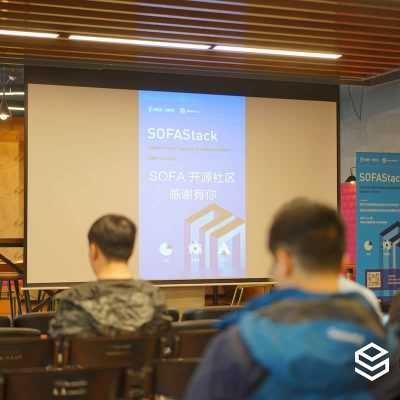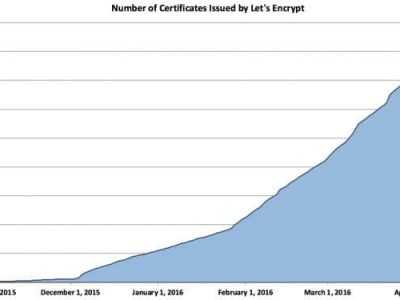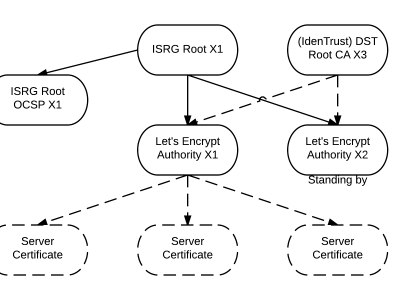ssh_scan:遠程驗證你 SSH 服務的配置和策略

ssh_scan 有如下好處:
- 它的依賴是最小化的,
ssh_scan只引入了本地 Ruby 和 BinData 來進行它的工作,沒有太多的依賴。 - 它是可移植的,你可以在其它的項目中使用
ssh_scan或者將它用在自動化任務上。 - 它是易於使用的,只需要簡單的將它指向一個 SSH 服務就可以獲得一個該服務所支持的選項和策略狀態的 JSON 格式報告。
- 它同時也是易於配置的,你可以創建適合你策略需求的策略。
建議閱讀: 如何在 Linux 上安裝配置 OpenSSH 服務
如何在 Linux 上安裝 ssh_scan
有如下三種安裝 ssh_scan 的方式:
使用 Ruby gem 來安裝運行,如下:
----------- 在 Debian/Ubuntu -----------
$ sudo apt-get install rubygems
$ sudo gem install ssh_scan
----------- 在 CentOS/RHEL -----------
# yum install ruby rubygems
# gem install ssh_scan
使用docker 容器來運行,如下:
# docker pull mozilla/ssh_scan
# docker run -it mozilla/ssh_scan /app/bin/ssh_scan -t github.com
使用源碼安裝運行,如下:
# git clone https://github.com/mozilla/ssh_scan.git
# cd ssh_scan
# gpg2 --keyserver hkp://keys.gnupg.net --recv-keys 409B6B1796C275462A1703113804BB82D39DC0E3
# curl -sSL https://get.rvm.io | bash -s stable
# rvm install 2.3.1
# rvm use 2.3.1
# gem install bundler
# bundle install
# ./bin/ssh_scan
如何在 Linux 上使用 ssh_scan
使用 ssh_scan 的語法如下:
$ ssh_scan -t ip地址
$ ssh_scan -t 主機名
舉個例子來掃描 192.168.43.198 這台伺服器的 SSH 配置和策略,鍵入:
$ ssh_scan -t 192.168.43.198
注意你同時也可以像下方展示的給 -t 選項傳入一個[IP地址/地址段/主機名]:
$ ssh_scan -t 192.168.43.198,200,205
$ ssh_scan -t test.tecmint.lan
輸出示例:
I, [2017-05-09T10:36:17.913644 #7145] INFO -- : You're using the latest version of ssh_scan 0.0.19
[
{
"ssh_scan_version": "0.0.19",
"ip": "192.168.43.198",
"port": 22,
"server_banner": "SSH-2.0-OpenSSH_7.2p2 Ubuntu-4ubuntu2.1",
"ssh_version": 2.0,
"os": "ubuntu",
"os_cpe": "o:canonical:ubuntu:16.04",
"ssh_lib": "openssh",
"ssh_lib_cpe": "a:openssh:openssh:7.2p2",
"cookie": "68b17bcca652eeaf153ed18877770a38",
"key_algorithms": [
"curve25519-sha256@libssh.org",
"ecdh-sha2-nistp256",
"ecdh-sha2-nistp384",
"ecdh-sha2-nistp521",
"diffie-hellman-group-exchange-sha256",
"diffie-hellman-group14-sha1"
],
"server_host_key_algorithms": [
"ssh-rsa",
"rsa-sha2-512",
"rsa-sha2-256",
"ecdsa-sha2-nistp256",
"ssh-ed25519"
],
"encryption_algorithms_client_to_server": [
"chacha20-poly1305@openssh.com",
"aes128-ctr",
"aes192-ctr",
"aes256-ctr",
"aes128-gcm@openssh.com",
"aes256-gcm@openssh.com"
],
"encryption_algorithms_server_to_client": [
"chacha20-poly1305@openssh.com",
"aes128-ctr",
"aes192-ctr",
"aes256-ctr",
"aes128-gcm@openssh.com",
"aes256-gcm@openssh.com"
],
"mac_algorithms_client_to_server": [
"umac-64-etm@openssh.com",
"umac-128-etm@openssh.com",
"hmac-sha2-256-etm@openssh.com",
"hmac-sha2-512-etm@openssh.com",
"hmac-sha1-etm@openssh.com",
"umac-64@openssh.com",
"umac-128@openssh.com",
"hmac-sha2-256",
"hmac-sha2-512",
"hmac-sha1"
],
"mac_algorithms_server_to_client": [
"umac-64-etm@openssh.com",
"umac-128-etm@openssh.com",
"hmac-sha2-256-etm@openssh.com",
"hmac-sha2-512-etm@openssh.com",
"hmac-sha1-etm@openssh.com",
"umac-64@openssh.com",
"umac-128@openssh.com",
"hmac-sha2-256",
"hmac-sha2-512",
"hmac-sha1"
],
"compression_algorithms_client_to_server": [
"none",
"zlib@openssh.com"
],
"compression_algorithms_server_to_client": [
"none",
"zlib@openssh.com"
],
"languages_client_to_server": [
],
"languages_server_to_client": [
],
"hostname": "tecmint",
"auth_methods": [
"publickey",
"password"
],
"fingerprints": {
"rsa": {
"known_bad": "false",
"md5": "0e:d0:d7:11:f0:9b:f8:33:9c:ab:26:77:e5:66:9e:f4",
"sha1": "fc:8d:d5:a1:bf:52:48:a6:7e:f9:a6:2f:af:ca:e2:f0:3a:9a:b7:fa",
"sha256": "ff:00:b4:a4:40:05:19:27:7c:33:aa:db:a6:96:32:88:8e:bf:05:a1:81:c0:a4:a8:16:01:01:0b:20:37:81:11"
}
},
"start_time": "2017-05-09 10:36:17 +0300",
"end_time": "2017-05-09 10:36:18 +0300",
"scan_duration_seconds": 0.221573169,
"duplicate_host_key_ips": [
],
"compliance": {
"policy": "Mozilla Modern",
"compliant": false,
"recommendations": [
"Remove these Key Exchange Algos: diffie-hellman-group14-sha1",
"Remove these MAC Algos: umac-64-etm@openssh.com, hmac-sha1-etm@openssh.com, umac-64@openssh.com, hmac-sha1",
"Remove these Authentication Methods: password"
],
"references": [
"https://wiki.mozilla.org/Security/Guidelines/OpenSSH"
]
}
}
]
你可以使用 -p 選項來指定不同的埠,-L 選項來開啟日誌記錄配合 -V 選項來指定日誌級別:
$ ssh_scan -t 192.168.43.198 -p 22222 -L ssh-scan.log -V INFO
另外,可以使用 -P 或 --policy 選項來指定一個策略文件(默認是 Mozilla Modern)(LCTT 譯註:這裡的 Modern 可能指的是 https://wiki.mozilla.org/Security/Server_Side_TLS 中提到的 Modern compatibility ):
$ ssh_scan -t 192.168.43.198 -L ssh-scan.log -V INFO -P /path/to/custom/policy/file
ssh_scan 使用幫助與其它示例:
$ ssh_scan -h
輸出示例:
ssh_scan v0.0.17 (https://github.com/mozilla/ssh_scan)
Usage: ssh_scan [options]
-t, --target [IP/Range/Hostname] IP/Ranges/Hostname to scan
-f, --file [FilePath] File Path of the file containing IP/Range/Hostnames to scan
-T, --timeout [seconds] Timeout per connect after which ssh_scan gives up on the host
-L, --logger [Log File Path] Enable logger
-O, --from_json [FilePath] File to read JSON output from
-o, --output [FilePath] File to write JSON output to
-p, --port [PORT] Port (Default: 22)
-P, --policy [FILE] Custom policy file (Default: Mozilla Modern)
--threads [NUMBER] Number of worker threads (Default: 5)
--fingerprint-db [FILE] File location of fingerprint database (Default: ./fingerprints.db)
--suppress-update-status Do not check for updates
-u, --unit-test [FILE] Throw appropriate exit codes based on compliance status
-V [STD_LOGGING_LEVEL],
--verbosity
-v, --version Display just version info
-h, --help Show this message
Examples:
ssh_scan -t 192.168.1.1
ssh_scan -t server.example.com
ssh_scan -t ::1
ssh_scan -t ::1 -T 5
ssh_scan -f hosts.txt
ssh_scan -o output.json
ssh_scan -O output.json -o rescan_output.json
ssh_scan -t 192.168.1.1 -p 22222
ssh_scan -t 192.168.1.1 -p 22222 -L output.log -V INFO
ssh_scan -t 192.168.1.1 -P custom_policy.yml
ssh_scan -t 192.168.1.1 --unit-test -P custom_policy.yml
SSH 伺服器相關參考閱讀:
- 使用 SSH Keygen(ssh-keygen)五步實現 SSH 免密登錄
- 安全 SSH 伺服器的 5 個最佳實踐
- 使用 Chroot 來限制 SSH 用戶進入某些目錄
- 如何配置 SSH 連接來簡化遠程登錄
如果需要更詳細的信息可以訪問 ssh_scan 的 Github 倉庫:https://github.com/mozilla/ssh_scan
作者簡介:
Aaron Kili 是 Linux 與 F.O.S.S (自由及開源軟體)愛好者,一位將來的 Linux 系統管理員,網站開發者,現在是一個熱愛與計算機一起工作並且擁有強烈知識分信念的 TecMint 內容貢獻者。
via: https://www.tecmint.com/ssh_scan-ssh-configuration-and-policy-scanner-for-linux/
作者:Aaron Kili 譯者:wcnnbdk1 校對:wxy
本文轉載來自 Linux 中國: https://github.com/Linux-CN/archive






















